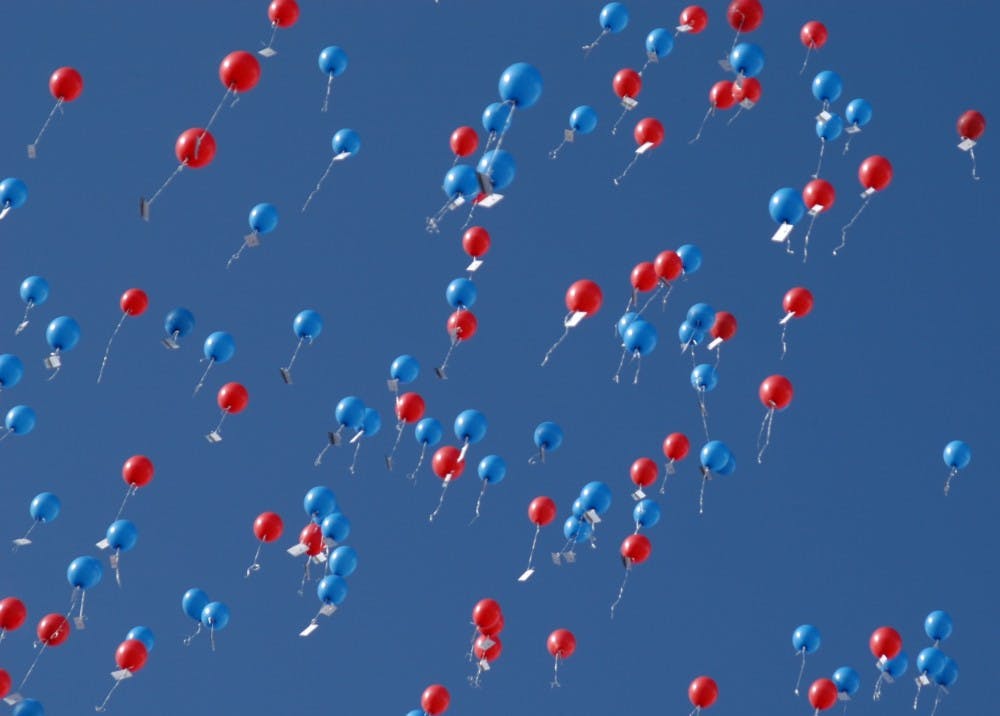Standing in the back of the crowded Senate Chamber of Whig Hall on midterm election night, I turned to a friend and commented on how American Whig-Cliosophic Society had done a great job of creating a fun and exciting event that evening. Seemingly half the campus had piled in together to watch television coverage of the midterms for hours, accompanied by giveaways and plenty of food.
In response, my friend turned to me in shock and asked, “How can you talk about fun on a night like this, when the stakes are so high?” He went on to lament the U.S. custom of election night watch parties and of treating such momentous episodes as if they were just another excuse to hang out with friends. “The republic is on the line, and we’re here eating pizza,” he concluded.
Surprisingly, that comment stuck with me throughout the evening and even after the results were in. Was he right? Was the fact that I enjoyed election night in the same way I would enjoy a normal study break a problem? Had I shown a lack of investment in such an important election? Of course, I was very aware of all the enormous consequences that the results would bring. But perhaps the very idea of election night watch parties makes no sense, and we should all be sitting in our dorms with bated breath awaiting the results.
There are few other events that are so consequential and decisive in our society as elections. Recognizing this, elections wouldn’t seem to be causes for partying until they are over and our preferred candidate has won. Until that point, it seems logical to feel nothing but anxiety about the future.
I would be the first to agree that people in general need to take politics more seriously. Yet, I also believe that the sentiment that elections cannot be joyful social occasions is misguided. Even in our excessively troubled contemporary political moment, elections are still opportunities to celebrate the simple fact that we live in a functioning democratic republic.
Despite our seemingly endless political disagreements, the fact that we as a nation can agree on rules that determine who is given power, and then peacefully transfer that power when the rules dictate it, is exceptional and worth taking time to commemorate. Of course, there are plenty of forces that have succeeded in many cases in undermining this process (think gerrymandering and voter suppression), but in broad terms, the process still functions.
It is crucial to recognize that most governments throughout history have not operated this way, instead succumbing to violence and coercion when political disputes arose. A country where representative democracy is the norm is something truly unique. Elections offer the chance, on the very day when we express our differences through voting, to unite with those on the opposing side in admiration and agreement that we will respect the results.
This is why the trend within U.S. politics, at least most of the time, for losing candidates to fade from the spotlight and for the media to immediately move on is so crucial. While it has become a punchline to complain that election coverage is never ending — always moving quickly to the next election — and the fact that we are already talking about 2020 is slightly absurd, it is a positive thing that we can hold elections, receive the outcomes, and almost instantaneously progress to anticipating the next time we will be able to do so. This solidifies a sense of certainty in our ability to respond to losing an election not by delegitimizing the contest but by attempting to win the next one, a praiseworthy practice that strengthens our democracy.

For this reason I believe that there was nothing wrong with the Whig-Clio party. In fact, I would argue that it is healthy and essential for our society to mark election day with celebration. There must be an effort made, at least for one night, to be able to feel both severe disappointment when a candidate we believe is dangerous or unqualified wins, and a feeling of intense pride in our working democracy.
Sitting in that overcrowded space next to friends all over the political spectrum and just simply watching results roll in was truly a remarkable phenomenon. I felt part of something bigger: part of the process, part of the extraordinary way political decisions have been made in the modern era. And that, in and of itself, is something worth celebrating.
Ben Gelman is a first-year from Houston, Texas. He can be reached at bgelman@princeton.edu.









